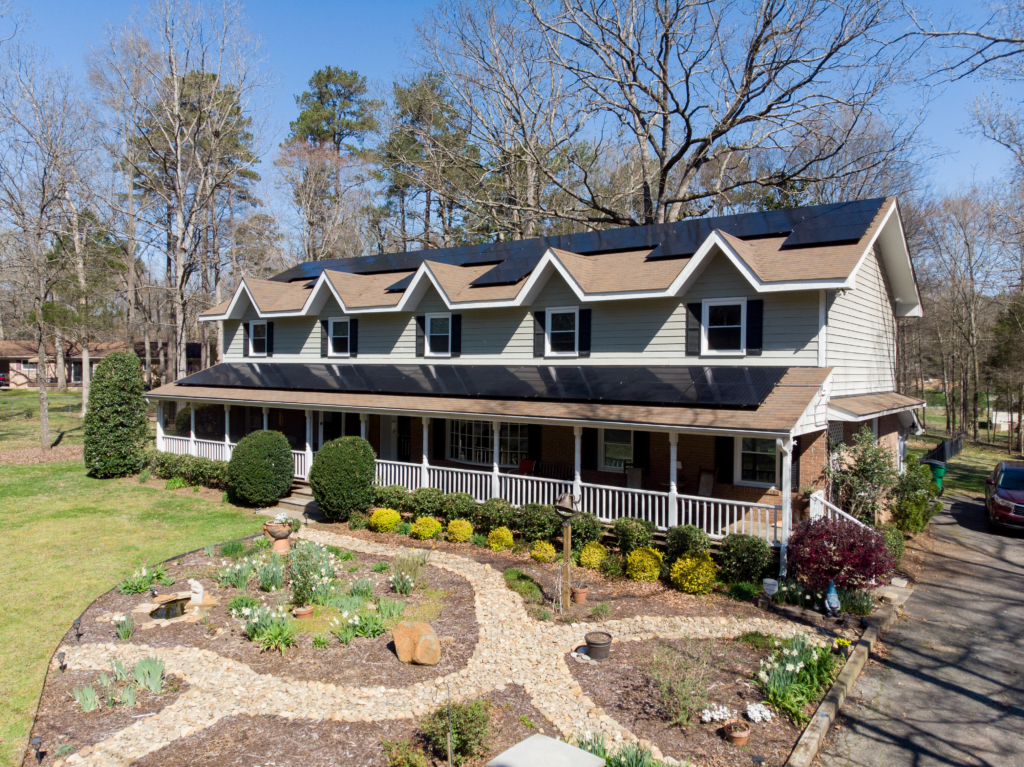Commercial Solar Financing
Commercial Solar Financing
Look into commercial solar financing for your business. The economics of a solar investment are excellent.
Tax incentives are part of the equation, but just as importantly, solar acts as a hedge against conventional energy prices. An investor can recapture the initial investment in less four years and enjoy the “solar hedge” for the remainder of the life of the system, which can even 40 years or longer. Another way to think about it: solar locks in lower priced energy. Such an investment has been shown to yield an after-tax 8 to 13% Internal Rate of Return.
With a 25-year warranty on the panels and low weather volatility (+/- 3% annually), solar energy has a low-risk profile that is comparable to financial investments that yield returns only in the low single digits. By comparison, solar is spectacular!
The Solar Hedge
Using solar as a hedge against utility price volatility is highly valuable to businesses that are focused on managing long-term budgets. Combined with innovative financing options that further reduce upfront costs, solar has a new value proposition that makes good business sense.
Small Business and Commercial Financing
Focus your resources on your business and go solar without having to make a large initial capital outlay.
According to the Solar Energy Industries Association, in 2016, “the price of solar energy systems has dropped rapidly over the past 5 years. In some places, it is more cost effective to deploy solar than buy electricity from the local utility. And no matter where the company is located, solar provides predictably priced electricity for 20 to 30 years. This hedge against utility price volatility is highly valuable to businesses that are focused on managing long-‐term budgets. Combined with innovative financing options that further reduce upfront costs, solar has a new value proposition that makes business sense for major companies nationwide.”
Commercial Solar Financing Tax Incentives
- In 2020, 26% Federal Tax Credit
- In South Carolina, an additional 25% State Tax Credit
- Accelerated Depreciation (MACRs) which allows you to maximize your depreciation deductions in 1st 5 years even as your solar investment has a 25 year+ useful life
Renu provides a full-service, turn-key solution for Commercial Solar. Renu provides a no-obligation solar consultation to analyze the economics and benefits for solar on your business.

Frequently Asked Questions About Commercial Solar:
How exactly does going solar and a solar system itself work?
How many solar panels do I need for my home?
Roof-size/available space: When we look at the size of your roof and the space available, we gather data that tell us the maximum number of solar panels your home or site can hold and we even consider shading. We use a software “Suneye” which takes a 360 picture of your roof and we use this photo to determine if your home is a good candidate for solar.
Energy Usage: When we determine energy usage we look at your past electrical bills from over the course of a year to make sure your system isn’t too big or too small.
Your Budget: We take your budget seriously and most importantly, we want you to be satisfied with our services. We take your feedback on how much you want to spend so that we can size your system appropriately.
What is solar net-metering?
Does Duke Energy offer net-metering?
Curious about the cost of a home solar system?
Ready to Own Your Own Energy?
Speak to Us Today!
